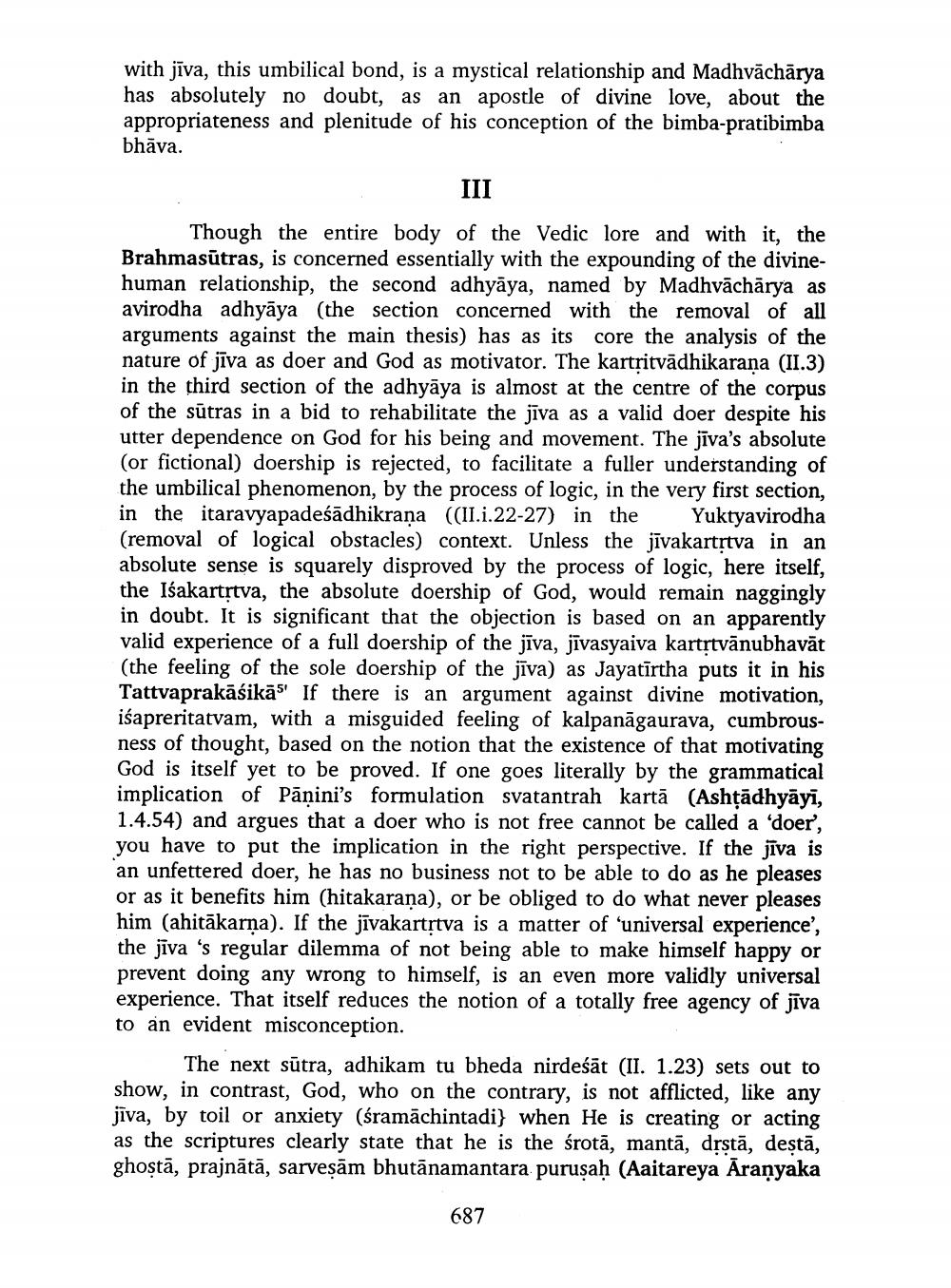________________
with jīva, this umbilical bond, is a mystical relationship and Madhvacharya has absolutely no doubt, as an apostle of divine love, about the appropriateness and plenitude of his conception of the bimba-pratibimba bhāva.
III
Though the entire body of the Vedic lore and with it, the Brahmasūtras, is concerned essentially with the expounding of the divinehuman relationship, the second adhyaya, named by Madhvacharya as avirodha adhyaya (the section concerned with the removal of all arguments against the main thesis) has as its core the analysis of the nature of jīva as doer and God as motivator. The kartṛitvādhikaraṇa (II.3) in the third section of the adhyāya is almost at the centre of the corpus of the sutras in a bid to rehabilitate the jiva as a valid doer despite his utter dependence on God for his being and movement. The jīva's absolute (or fictional) doership is rejected, to facilitate a fuller understanding of the umbilical phenomenon, by the process of logic, in the very first section, in the itaravyapadeśādhikraṇa ((II.1.22-27) in the Yuktyavirodha (removal of logical obstacles) context. Unless the jivakartṛtva in an absolute sense is squarely disproved by the process of logic, here itself, the Isakartṛtva, the absolute doership of God, would remain naggingly in doubt. It is significant that the objection is based on an apparently valid experience of a full doership of the jīva, jīvasyaiva kartṛtvānubhavāt (the feeling of the sole doership of the jiva) as Jayatirtha puts it in his Tattvaprakāśikā" If there is an argument against divine motivation, iśapreritatvam, with a misguided feeling of kalpanagaurava, cumbrousness of thought, based on the notion that the existence of that motivating God is itself yet to be proved. If one goes literally by the grammatical implication of Panini's formulation svatantrah kartā (Ashṭādhyāyī, 1.4.54) and argues that a doer who is not free cannot be called a 'doer', you have to put the implication in the right perspective. If the jīva is an unfettered doer, he has no business not to be able to do as he pleases or as it benefits him (hitakarana), or be obliged to do what never pleases him (ahitakarṇa). If the jivakartṛtva is a matter of 'universal experience', the jīva 's regular dilemma of not being able to make himself happy or prevent doing any wrong to himself, is an even more validly universal experience. That itself reduces the notion of a totally free agency of jīva to an evident misconception.
The next sutra, adhikam tu bheda nirdeśāt (II. 1.23) sets out to show, in contrast, God, who on the contrary, is not afflicted, like any jīva, by toil or anxiety (śramāchintadi} when He is creating or acting as the scriptures clearly state that he is the śrotā, mantā, dṛṣṭā, deṣtā, ghostā, prajnātā, sarveṣām bhutānamantara puruṣaḥ (Aaitareya Aranyaka
687




